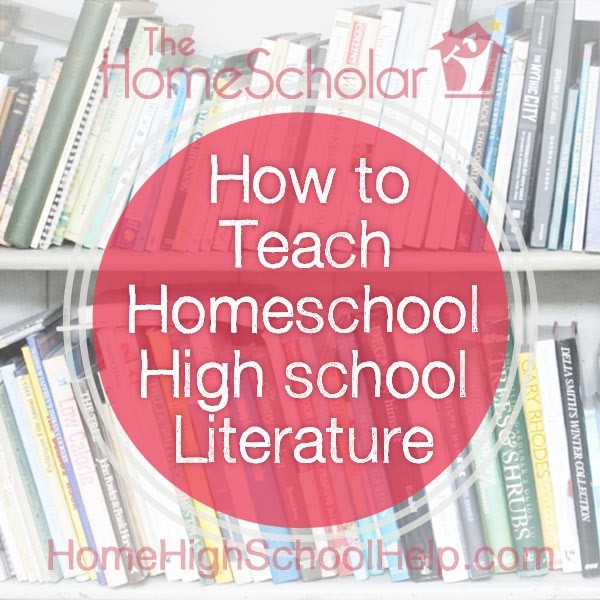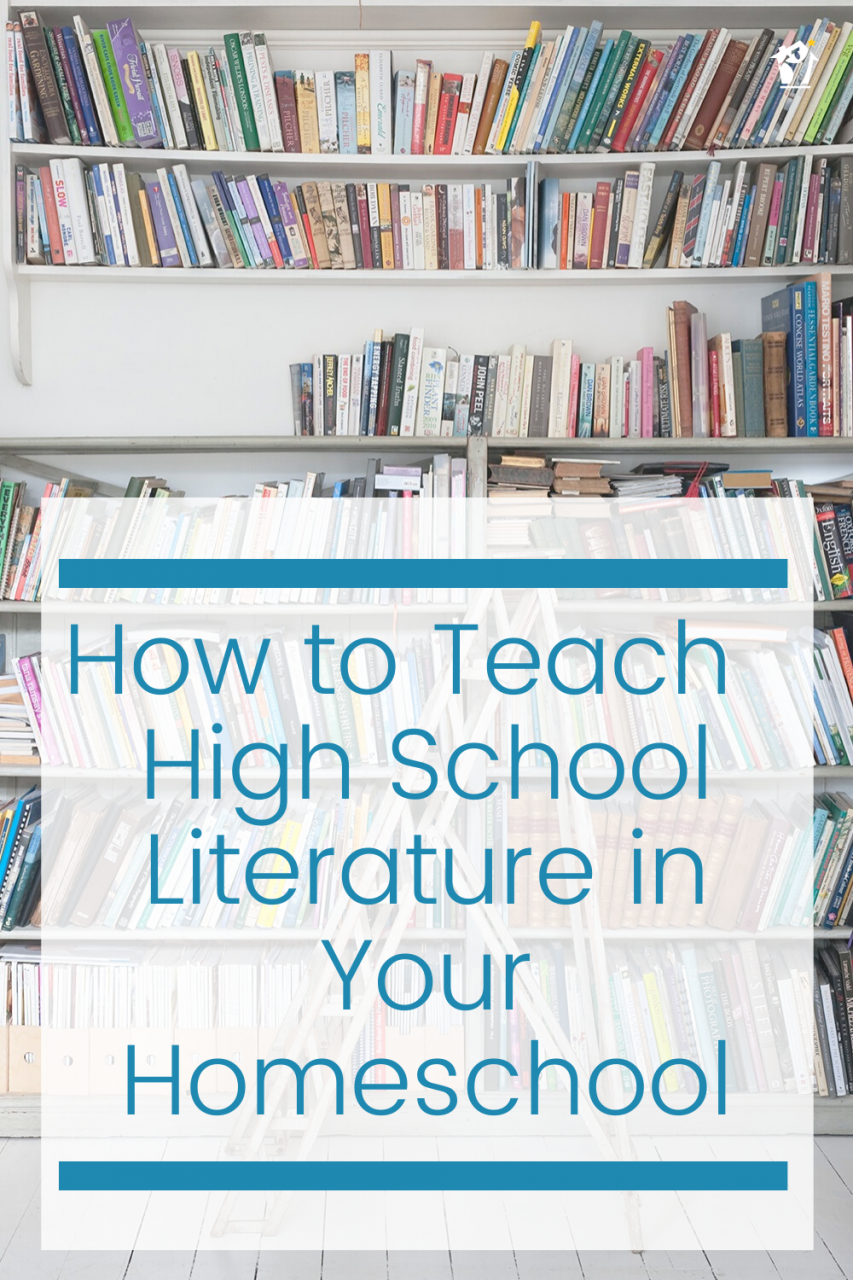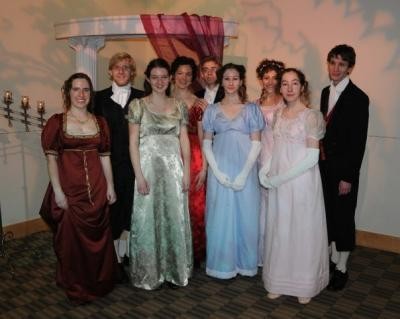Teaching homeschool high school literature is often a challenge for parents. It can be intimidating given that there are so many different kinds of literature and so many different ways to teach literature, not to mention getting your child to learn to love a good piece of literature. Join me below and we’ll walk through the ins-and-outs of high school literature.
This post contains affiliate links. If you click and buy I make a few pennies, but not enough for a latte.
Literature-based high school literature curriculum.
We used a literature-based curriculum for high school. My children read TONS of books! What does literature-based learning look like in a REAL world, where parents are faced with the demands of homeschooling, housework, and household economics?
Wouldn’t it be nice to have the ability to pre-read every book and have thoughtful conversations about everything your children read? Yes, but our children are only in high school for four years. That’s NOT enough time to read all the books suggested in a literature-based curriculum, and not enough time to thoroughly digest each book to the degree an English Major in college might.
That’s ok! I did not read every book ahead of time. I looked over many of the books in advance in the Sonlight Catalog, Jim Trelease Read-Aloud Handbook, The Well-Trained Mind, or Tapestry of Grace Catalog. These sources gave me a clue about the content of each book, so I would know if reading in advance was necessary. Some books I chose to read in advance just because I wanted to read them myself!
I did take the time to read aloud to my children almost every single day of high school. Once or twice they would express concern that I was treating them like “babies.” I would honestly tell them that my own Honors English teacher in the public high school read aloud to the class. It was a non-negotiable. We read aloud in our homeschool. Hearing me pronounce words would help their pronunciation (and vocabulary – we could talk about a word we came across that they might not know). Sometimes I would begin a book by reading aloud. Once they were hooked on the story, I would allow them to finish reading it on their own.
Every parent has to weigh the pros and cons for themselves. “Which book is important to read myself since I can’t read them all?” You also need to choose which books to discuss and which to enjoy separately, simply for the love of reading. A lot of factors go into those decisions. How many pounds of laundry per week do you have to do in a week? How many load of dishes? How many younger siblings are you juggling? How much do you value personal time?
I know one thing for sure; the love of reading and the love of learning will stay with them forever. You can instill this love without reading books in advance or analyzing literature. You can even instill it without having a two-way discussion … just listen to them express their joy in reading each book.
Literature-based high school curriculum options.
Here is a list of some great literature-based curriculum, so you can compare each one and see what’s a good fit for you.
- Tapestry of Grace
- My Father’s World
- The Well-Trained Mind
- Robinson
- Beautiful Feet
- Veritas Press
- Truth Quest History
- <a href="Helpful Resources from Notgrass History” target=”_blank” class=”” title=”” rel=”noopener noreferrer”>Notgrass Company
- The Noah Plan
- Ambleside-Online
- Sonlight Curriculum
I hope this list helps you narrow down your choices when it comes to literature-based high school literature.
If you have a college bound student and are looking for books that will help them prepare for college, check out my reading list for college bound students. It’s broken down into different literature groupings and there’s even a group for reluctant readers.
If you have a middle school student that you are simply trying to encourage and instill a love of reading, check out my reading list for middle school students in my article, 7 Ways to Encourage Middle School Reading.
Literary analysis is not a high school literature requirement.
I have to be honest. Literary analysis was never my thing when I was teaching high school literature to my sons. In fact, I flat out hated doing it. So, when I noticed an interesting article in Washington Post years ago, it made me wonder if they hated literary analysis as much as I did.
The author, Nancy Schnog says, “I’ll never forget what one parent, bemoaning his daughter’s aversion to great books after she took AP English Literature, wrote to me: “What I’ve seen teachers do is take living, breathing works of art and transcrom them into desicated lab speciments fit for dissection.”
She goes on to say, “As someone who teaches in private schools, I find this especially painful to acknowledge. I haven’t been constrained in my teaching methods by Standards of Learning or No Child Left Behind testing. But, even where teachers are free to design their own “best practices,” I’ve been amazed at the chasm between their sense of purpose in their curricular choices and teens’ sense that what they choose for them is irrelevant. Ironically, kids’ turn-off to books can originate in teachers’ hopes of turning them on.”
Hmmmmm. I think I’ll stick with my guns, and say again that it’s the love of reading that matters. The author’s conclusion is that you shouldn’t beat kids up with literary analysis, and you should encourage them to read books they love.
The author continues with this, “If that means an end to business as usual — abolishing dry-bones literature tests, cutting back on fact-based quizzes, adding works of science fiction or popular nonfiction to the reading list — so be it. We can continue to alienate teen readers, or we can hear them, acknowledge their tastes, engage directly with their resistance to serious reading and move gradually, with sensitivity to what’s age-appropriate, toward the realm of great literature.”
True confession: I admire homeschoolers who cover literary analysis, but I simply wasn’t capable. I know it seems odd that someone who is such a fan of literature-based curriculum should say this. I primarily used Sonlight, and later The Well-Trained Mind. Sonlight was the easiest to use, but after a while we had read most of the books, so I switched to The Well-Trained Mind reading lists and other reading lists for the college bound and tried to tie in the reading with history. We didn’t do any literary analysis, we simply enjoyed books.
The truth is, I always felt guilty about not doing literary analysis. I decided early on that my goal in teaching the Bible was for the kids to love their Bible. So I finally decided that my goal for literature would be the same – teaching them to love literature. I didn’t want to beat the love of books out of them by making them analyze everything.
Keeping the focus on the love of learning is difficult, though, when you are faced with a kid who may only answer “fine” when you ask them about their reading.
How do you know you’ve succeeded at teaching high school literature?
How do you know when you have succeeded at teaching your child English in the form of literature? When I was homeschooling, I was so stressed out about literary analysis. It seemed as if we always failed at reading comprehension and review questions. I knew that I wanted my kids to love reading, but I was still stressed about literary analysis.
The great homeschools have Socratic dialog. After reading, they enjoy deep and rich conversations about the nuances of great works of literature. They have meaningful discussions about historical perspective and relevant insights within classical and modern literature.
Meanwhile, I got comments like “Great book, mom…. What’s next?” Every year, I spent so much time looking over Progeny Press, Learning Language Arts Through Literature, and other curriculum choices. Why was I failing? Why couldn’t I teach literary analysis? When I read aloud, they laughed at the funny parts, and asked me to read more (or faster!) at the exciting parts. Still, we never had a good discussion about the deeper meanings of the literature we read.
Every homeschool mom has her “thing” that keeps her awake at night, and literature analysis was my nemesis. On tests and worksheets my children seemed to do terrible in reading comprehension, and yet they were reading all the time.
In retrospect, it all ended well. My kids were able to do college literary analysis in their honors class without a problem, earning A’s. Great 20/20 hindsight, but at the time I stressed over reading comprehension more than almost anything else. The summer my kids came home from their first year of college, I felt as if I could finally say I had succeeded in my goal. They went to the library for reading material for fun. My son, Alex, read the entire works of Shakespeare and my son, Kevin, read some C.S. Lewis and Dostoevsky.
One more piece of evidence suggesting that I had, in fact, succeeded was when my younger son founded a Jane Austen Fan Club at college. He organized a Pemberley Ball, complete with period costumes, decorations, and food of the era. It was a huge success! My sons both love the Jane Austen books and movies, and they enjoyed the Jane Austen inspired Pemberley Ball.
I may have been stressed out when they were in high school, but I can honestly say that I achieved my goal: they still love reading. I finally decided that my goal for literature would be the same as my goal for Bible study. I decided that my goal in teaching the Bible was for the kids to LOVE their Bible, not analyze the Bible. Therefore I would teach them to LOVE literature instead of analyze it. I didn’t want to “beat the love of books out of them” with analyzing everything.
Keeping the focus on “love of learning” is so hard, though, when you are faced with a kid who may only answer “fine” when you ask them about their reading. It is the love of reading that matters. Hang in there – you can succeed, too! You may be stressed about a subject, but give those seeds time to germinate, and you’ll see some fruit yourself!








Thanks, Lee. I needed to read this tonight. Encouraging and helpful.
Thanks so much!
You’re welcome!
Blessings,
Lee
You’re welcome!
Blessings,
Lee